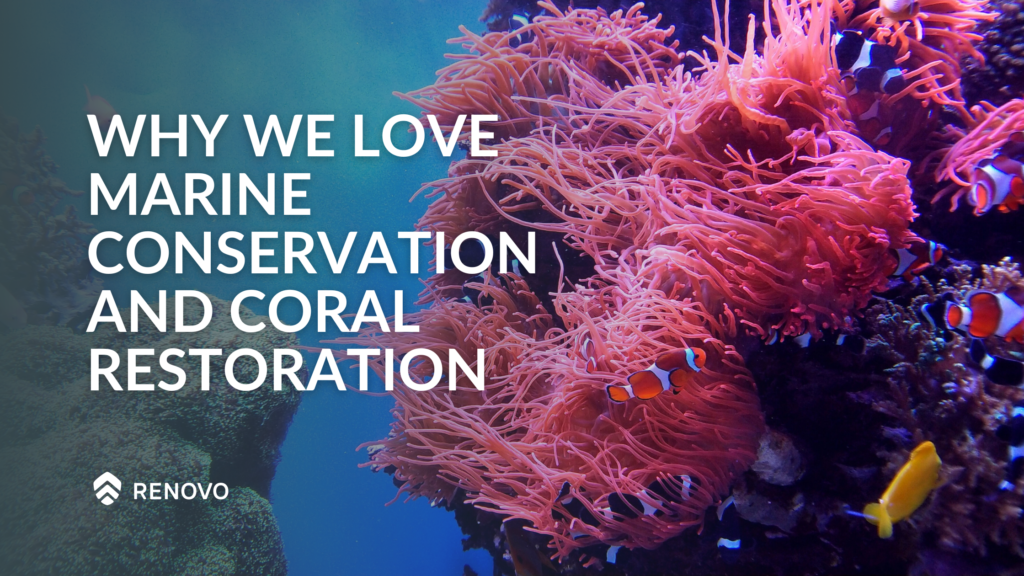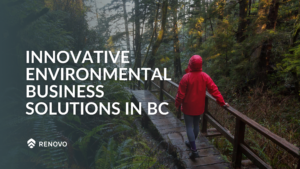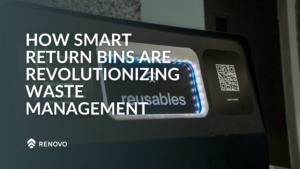How Sheryl, our Co-Founder discovered her passion
Welcome to Sheryl’s incredible journey of discovering her passion for coral restoration. Join us as we learn from and reflect on her experiences, the science behind coral restoration, the challenges we face, and the beautiful underwater world we at Renovo strive to protect.
The Beginnings of Sheryl’s Diving Journey
Growing up in the Philippines, a tropical paradise, I’ve always felt a deep connection to the ocean. As a kid, I was always fascinated by the beauty of the deep blue sea and the vibrant marine life. My journey into diving started in the Philippines, one of the world’s most diverse marine ecosystems and vibrant coral reefs. Eight years ago, I moved to Canada, which is very different from the tropical country I grew up in. This taught me to be resilient and adaptable, just like the corals. Despite all the changes, my passion for the ocean has stayed strong.
Photo by Eibner Saliba on Unsplash
My journey into marine conservation was sparked by an inspiring documentary on Netflix, Mission Blue by Sylvia Earle. Sylvia, a renowned marine biologist, underwater explorer, first female chief scientist of the U.S. National Oceanic and Atmospheric Administration and a National Geographic Explorer in Residence, is a true ocean advocate. Her campaign to save the world’s oceans from threats like overfishing and toxic waste resonated deeply with me, motivating me to take action.
In February 2023, I attended the Impact5 conference in Vancouver and discovered Coral Gardeners, an organization dedicated to coral restoration. Learning about coral bleaching and restoration efforts sparked a passion in me. For my birthday in April, I raised funds to adopt a coral in Costa Rica through Marine Conservation Costa Rica.
This act of giving connected me even more to the cause, and my journey continued with a visit to Ecuador, where I had the chance to visit the coral nurseries of Conmar – Conservacion Marina Ecuador. Seeing their new nursery and outplanting methods made me even more interested in learning how to get involved in this mission.
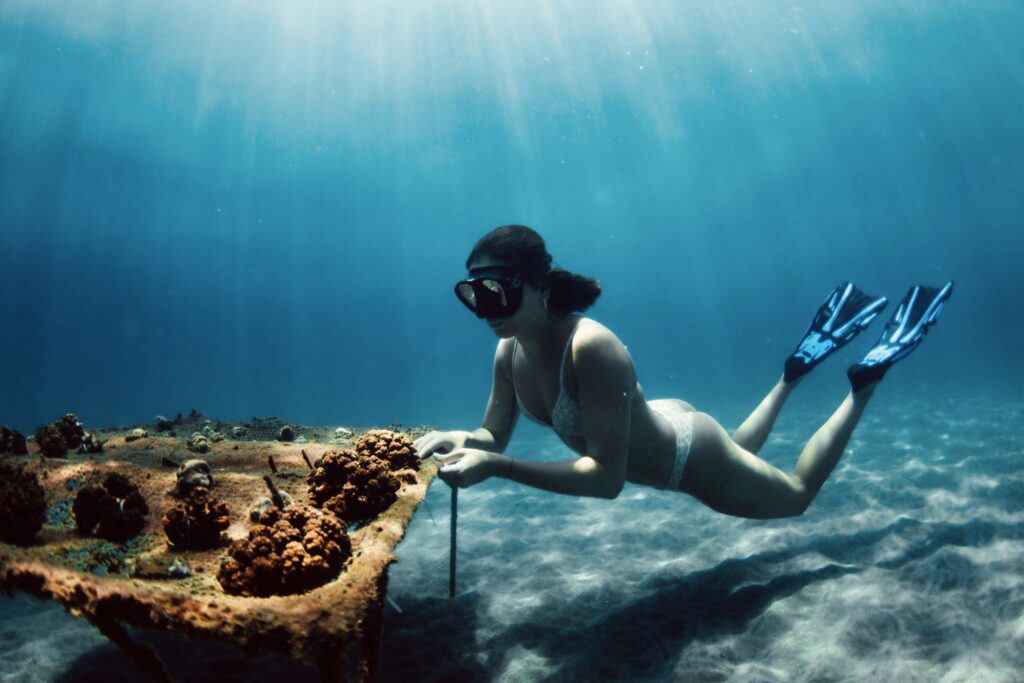
Photo by Dana Bjarner
Inspired by this passion, I got my Advanced PADI Scuba Diving Certification and PADI AWARE Coral Reef Conservation training in July 2023, under the guidance of Dr. German Mendez, founder of Cozumel Coral Reef Restoration Program (CCRRP) in Mexico. The training was both educational and emotional, as I learned about the detrimental effects of coral bleaching and how human activities are contributing to the degradation of our reefs. I actively participated in conservation techniques, such as cleaning harmful algae and bacteria from corals, and replanting broken coral fragments in underwater nurseries.
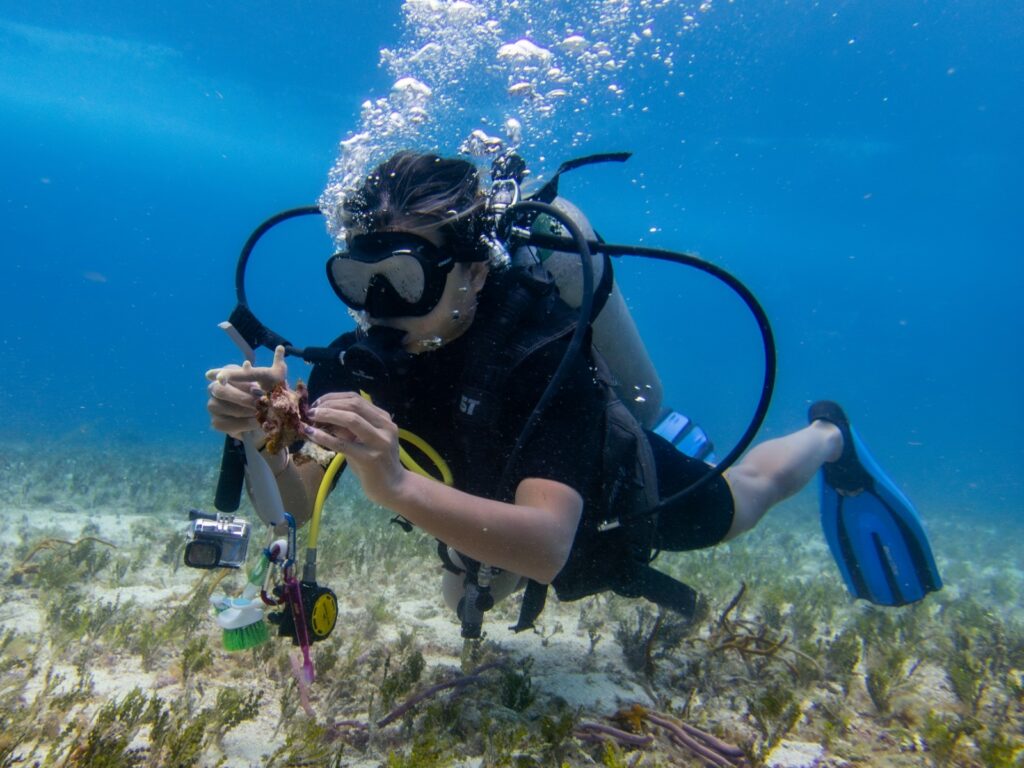
Planting my first coral was a meaningful experience, representing my commitment to the cause.
Sheryl, 2024
2024
This year, I celebrated my birthday by visiting one of my dream dive destinations – the Great Barrier Reef in Cairns, Australia. Joining a 7-day liveaboard with Spirit of Freedom, I had the incredible opportunity to explore the outer reef of the Coral Sea. The daily routine was simple yet rewarding: dive, eat, sleep, and repeat. Over the week, I completed 20 dives, each revealing the majestic beauty and the harsh realities of the reef. While some areas thrived, others showed the scars of climate change – coral bleaching, damaged reefs, and a decline in marine life. These contrasting sights reinforced the need to protect our oceans.
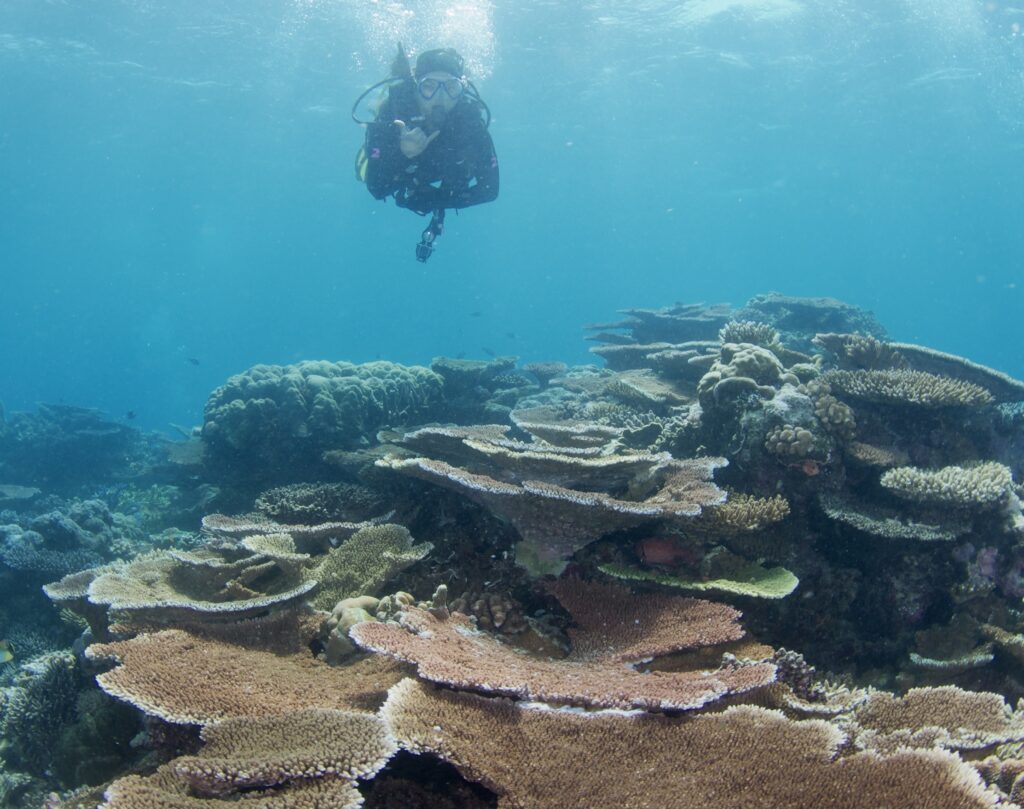
Exploring the largest and richest coral reef in the world was a humbling experience that deepened my appreciation for the ocean and the life it sustains. My diving journey has not only allowed me to witness the breathtaking beauty of marine ecosystems but also understand the critical importance of protecting them. As I continue to dive and advocate for marine conservation, I am committed to spreading awareness and inspiring others to join the fight to preserve our oceans.
What are Coral Reefs?
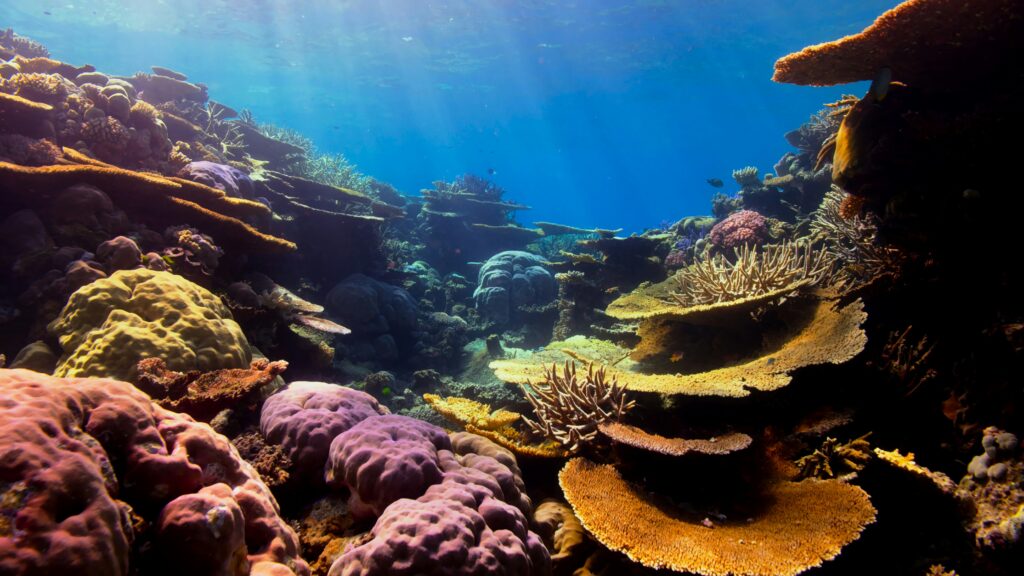
Photo by Oleksandr Sushko on Unsplash
Coral reefs are like underwater communities built by tiny animals called corals. These corals create large, rock-like structures in warm, shallow waters. Each structure is formed by thousands of tiny creatures called polyps, which deposit limestone to build the reef. You can find these vibrant ecosystems in places like the Caribbean, Southeast Asia, and the Great Barrier Reef in Australia.
They are essential to both marine life and people. From providing homes and food for sea creatures, to supporting local economies, and protecting our coastlines. By taking care of coral reefs, we help ensure a healthy planet for future generations.
Why Coral Reefs Matter to Marine Life
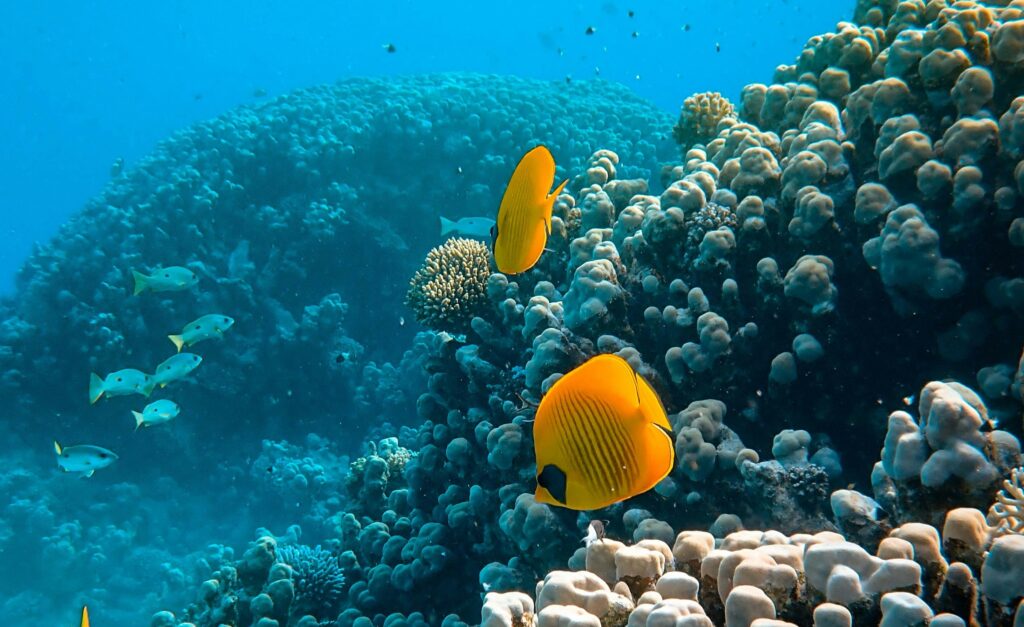
Photo by Francesco Ungaro on Unsplash
- Biodiversity: Coral reefs support an incredible diversity of marine species, making them one of the most biodiverse ecosystems on the planet.
- Homes for Sea Creatures: Coral reefs are full of life. Even though they cover less than 1% of the ocean, they are home to 25% of all marine species, like fish, crabs, and sea stars.
- Baby Fish Nurseries: Coral reefs act as safe nurseries for young fish, providing protection until they are ready for the open ocean.
- Food Sources: Reefs provide food for many marine animals and maintain the marine food chain – supporting a diverse and balanced ecosystem.
Why Coral Reefs Matter to People
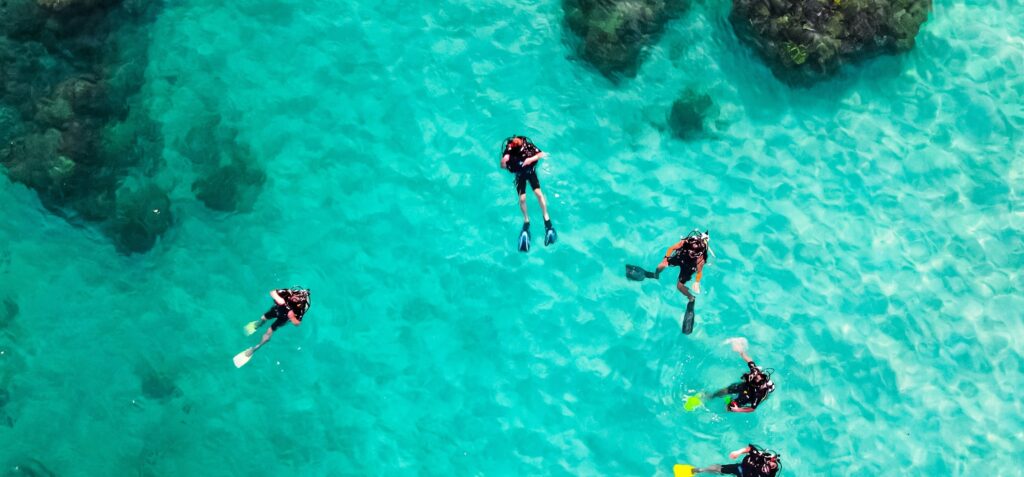
Photo by Nazarizal Mohammad on Unsplash
- Fishing: Many people rely on reefs for fishing. They provide a lot of the seafood that people eat.
- Tourism: Tourists love coral reefs. Activities like snorkeling and diving bring money to local economies.
- Coastal Protection: Reefs protect shorelines from storms and erosion by acting like natural barriers.
- Medicine: Some reef organisms are used in medical research, which could lead to new medicines.
Threats to Coral Reefs
It’s a sad truth that our coral reefs are dying because of climate change, pollution, overfishing, coastal development, and mass bleaching. The ocean generates 50 percent of the oxygen we need, absorbs 25 percent of all carbon dioxide emissions and captures 90 percent of the excess heat generated by these emissions. It’s our responsibility to protect it.
Currently, around 75% of coral reefs are under extreme threat from various global and local stressors. Scientists estimate that by 2050, only 10% of reefs will survive if we don’t take action. Without drastic changes to reduce the effects of climate change, 90% of coral reefs could be in danger by 2030, and all could be at risk by 2050.
Let’s act now to save these vital ecosystems for future generations.
Ways to Save Our Coral Reefs
Photo by Hiroko Yoshii on Unsplash
- Understand the issues and challenges facing coral reefs. Knowledge is the first step to protection.
- Support sustainable fishing practices to prevent overfishing and protect coral reef ecosystems.
- Reduce your carbon emissions to help fight climate change – it’s the biggest threat to coral reefs.
- Minimize plastic waste to keep our oceans clean and coral reefs healthy.
- If you’re a diver like me or a snorkeler, be a responsible visitor—just look but don’t touch.
- Use reef-friendly sunscreen that are free of harmful chemicals like oxybenzone and octinoxate to reduce the negative impact on coral health and marine ecosystems.
- Share this information about the importance of coral reefs with your family and friends.
- Donate to organizations dedicated to ocean and coral reef conservation. Every contribution counts. Some organizations I’ve personally supported include:
Lessons Learned
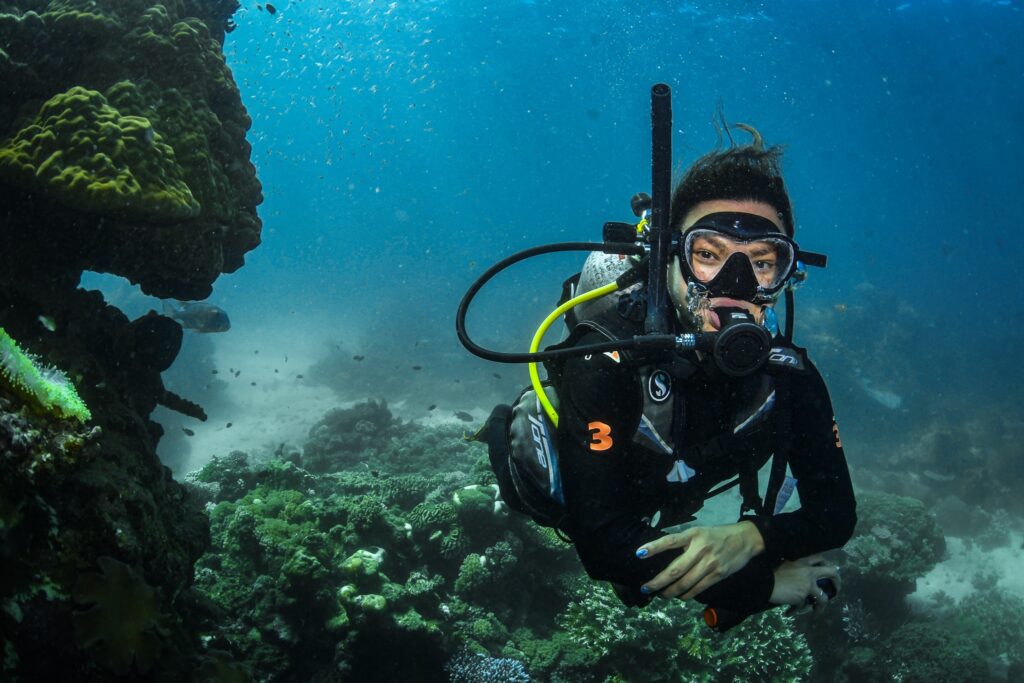
I’ve learned about the different types of corals, the reasons they’re dying, and the actions we can take to save them. Climate change, pollution, overfishing, destructive fishing practices, and warming water temperatures are some of the key threats to reefs worldwide. The loss of our corals will significantly impact marine ecosystems and the species that rely on them. Let’s work together to make a difference!
Over the past year, I’ve discovered ways to support and collaborate with coral restoration and marine conservation organizations to protect and preserve our ocean ecosystems. This is just the beginning, and I’m excited to continue these efforts with my team at Renovo.


